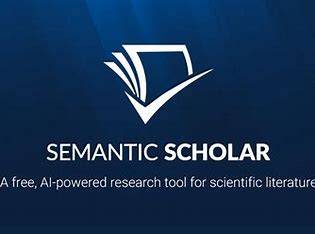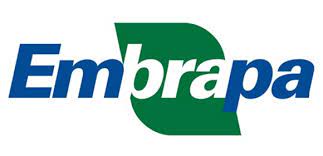MANAGEMENT BY PROCESSES AS A PRACTICE TO IMPROVE THE STRATEGIC PLANNING OF THE MILITARY POLICE OF PARANÁ
DOI:
https://doi.org/10.47820/recima21.v4i4.3027Keywords:
Military Police of Paraná, Process management, Public ManagementAbstract
The study presents a wide discussion on the proposed use of management by processes in the Military Police of Paraná (PMPR), based on the normative support of the Strategic Planning of the Corporation, provided for by Ordinance of the General Command nº 273/2022. Studies from the perspective of management by processes for the public sector are incipient, and find technical and legal support in article 37 of the Federal Constitution of 1988, when it lists the principle of efficiency, and for public administration it deals with the management of public resources with responsibility and focused on results. The objective of the investigation was to find out how management by processes collaborates and facilitates the various actions of the military police administration, in the pursuit of organizational efficiency. The research, with a qualitative focus and descriptive study type, used a systematic literature review, with the gathering of relevant studies on management by processes and the relevant legislation. As main research results, it is highlighted that the PMPR has a complex internal structure, and an organization model identified as functional. Measures of change derived from management by processes must always consider the doctrine and organizational culture, with functional structural transition planning for process-oriented, preserving its Institutional identity.
Downloads
References
ABNT NBR ISO 9001. Sistema de gestão pela qualidade. São Paulo: 2015.
ALIBABAEI, A.; BANDARA, W.; AGHDASI, M. Means of achieving business process management success factors. In: Proceedings of the 4th Mediterranean conference on information systems. Athens University of Economics and Business, 2009.
BPM CBOK. Version 4.0: Association of Business Process Management Professionals International. Portuguese Version. Capa comum. 2021.
BRASIL. Lei 9.874, de 29 de janeiro de 1999. Brasília: 1999.
_______. Constituição Federal do Brasil. Brasília: 1988.
_______. Decreto no 88.777, de 30 de setembro de 1983. Brasília, 1983.
_______. Decreto-Lei nº 667, de 2 de julho de 1969. Brasília, 1969.
BROCKE, J. V.; ROSEMANN, M. Manual de BPM: gestão de processos de negócio. Porto Alegre: Bookman, 2013.
BRODBECK, A. F.; HOPPEN, N.; BOBSIN, D. Uma metodologia para implementação da gestão por processos em organizações públicas. Revista de Administração da Universidade Federal de Santa Maria, v. 9, n. 4, p. 699-720. Santa Maria: 2016.
DAVENPORT, T. H. Process Innovation: reengineering work through information technology. Boston: Harvard Business School Press, 1992.
GULLEDGE, T. R.; SOMMER, R. A. Business process management: public sector implications in Business Process Management Journal. Disponível em: http://www.emeraldinsight.com/journals.htm?issn=1463-7154. Acesso em: 15 jan. 2023.
IRITANI, D. R. Análise sobre os conceitos e práticas de Gestão por Processos: revisão sistemática e bibliometria. Gestão e Produção, v. 22, n. 1, p. 164-180. São Paulo: 2015.
JÚNIOR, O. P.; SCUCUGLIA, R. Mapeamento e gestão por processos – BPM. São Paulo: M. Books, 2011.
LAVORENTI, M. S. O tombamento da gestão empresarial por meio de processos. 2016. Gauss Consulting Group. Disponível em: https://gaussconsulting. com.br/blog/o-tombamento-da-gestao-empresarial-por-meio-de-processos. Acesso em: 07 fev. 2023.
MINISTÉRIO PÚBLICO FEDERAL (MPF). Manual de gestão por processos. Secretaria Jurídica e de Documentação. Escritório de Processos Organizacionais do MPF. Brasília: MPF/PGR, 2013.
MEIRELLES, Hely Lopes. Direito Administrativo Brasileiro. São Paulo: Malheiros, 1998.
MIRI-LAVASSANI, K.; MOVAHEDI, B. Achieving higher supply chain performance via business process orientation. Business Process Management Journal, Boston: 2018.
PALVARINI, B. Gestão de Processos no Departamento de Programas de Gestão. Brasília: Ministério do Planejamento. Secretaria de Gestão. Brasília: 2010.
PARANÁ. Lei Estadual nº 16.575/2010. Curitiba: 2010.
PARANÁ. Lei Estadual nº 19.848/2019. Curitiba: 2019.
PEREIRA JUNIOR, J. T. Comentários à Lei de Licitações e Contratações da Administração Pública. 8 ed. Rio de Janeiro: Renovar, 2009.
PIETRO, M. S. Z. Di. Direito Administrativo. São Paulo: Atlas, 1999
POLÍCIA MILITAR DO PARANÁ (PMPR). Portaria do Comando-Geral nº 273/2022. Curitiba: 2022.
PRADELLA, S. Gestão de Processos: uma metodologia redesenhada para a busca de maior eficiência e eficácia organizacional. Revista Gestão e Tecnologia. Rio de Janeiro: 2013.
PROGRAMA GESPÚBLICA. Modelo de Excelência em Gestão Pública, Brasília. MP, SEGEP. Brasília: 2014. Disponível em: http://www.gespublica.gov.br/sites/default/files/documentos/modelodeexcelenciaemgestao publica2014.pdf. Acesso em: 17 jan. 2023.
SANTOS, A. Importação de Técnicas de Recursos Humanos: problema ou solução? Revista de Ciências da Administração. Florianópolis: 2010.
SANTOS, H. M.; SANTANA, A. F.; ALVES, C. F. Análise de fatores críticos de sucesso da gestão de processos de negócios em organizações públicas. Revista Eletrônica de Sistemas de Informação. Curitiba: 2012.
SARAVIA-VERGARA, E.; SANCHÍS-PEDREGOSA, C.; ALBORT-MORANT, G. Organizational culture, process management and maturity of the process: an empirical study of the process status in Peru. Global Business Review. New Delhi: 2020.
SCHEER, A.W. Business Process Engineering: Reference Models for Industrial Enterprises. New York: 1994.
TRKMAN, P. The critical success factors of business process management. International journal of information management. 2010.
Downloads
Published
How to Cite
Issue
Section
Categories
License
Copyright (c) 2023 RECIMA21 - Revista Científica Multidisciplinar - ISSN 2675-6218

This work is licensed under a Creative Commons Attribution 4.0 International License.
Os direitos autorais dos artigos/resenhas/TCCs publicados pertecem à revista RECIMA21, e seguem o padrão Creative Commons (CC BY 4.0), permitindo a cópia ou reprodução, desde que cite a fonte e respeite os direitos dos autores e contenham menção aos mesmos nos créditos. Toda e qualquer obra publicada na revista, seu conteúdo é de responsabilidade dos autores, cabendo a RECIMA21 apenas ser o veículo de divulgação, seguindo os padrões nacionais e internacionais de publicação.

 Clique para ver detalhes
Clique para ver detalhes 











